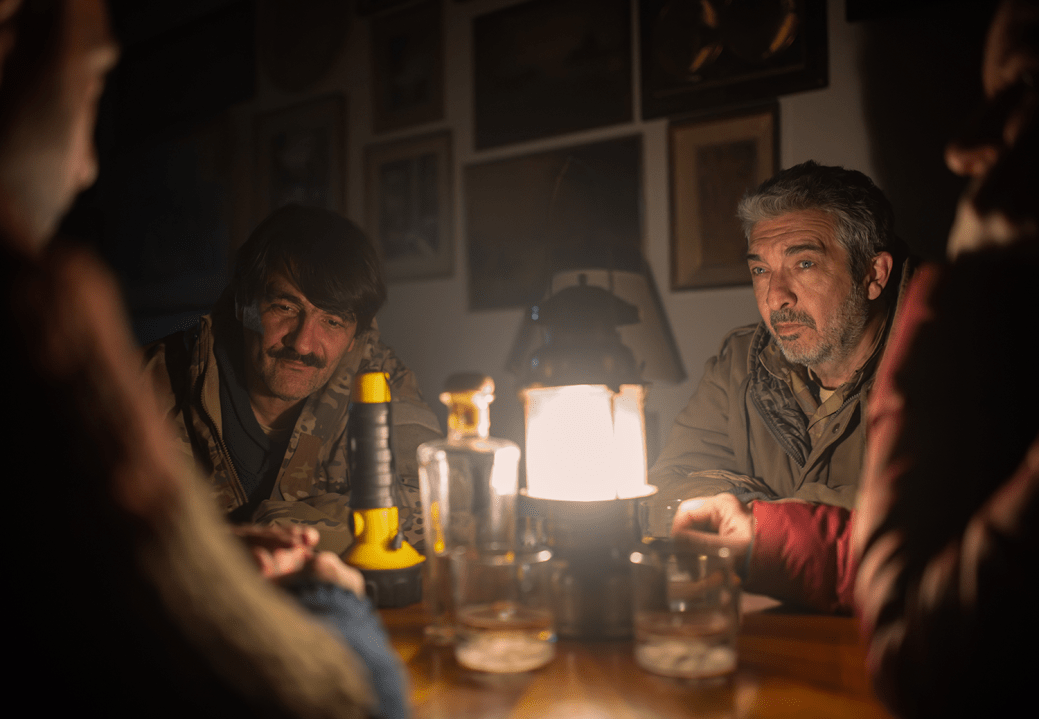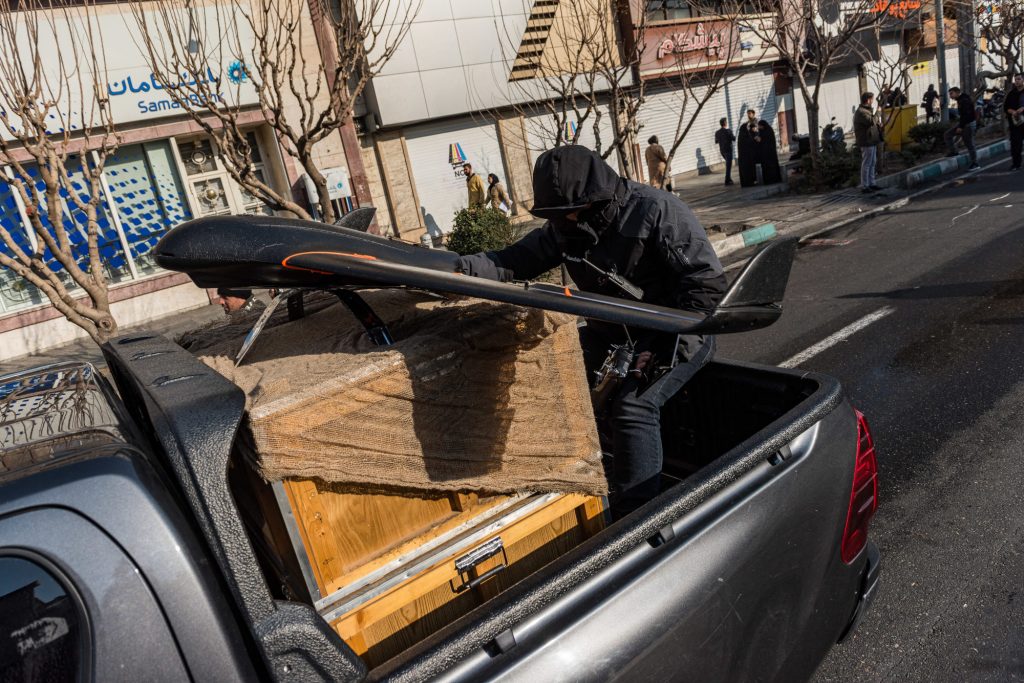
‘Next time you do a review, you’ve got to find something you like. You’ve been far too negative,’ said the Fawn. ‘Well, it’s hardly my fault if everything on TV is crap at the moment. I can’t just call up good stuff to order,’ I said. ‘Try,’ said the Fawn.
Luckily – and unwontedly – Netflix has come to my rescue with a dystopian sci-fi series called The Eternaut. Though I’m not totally convinced by the name – a conflation of ‘eternity’ and ‘astronaut’ – it’s a very enjoyable watch, which confirms, yet again, Delingpole’s Iron Law of Television: always go for the shows with subtitles.
This one is from Argentina, based on a graphic novel written by Hector German Oesterheld with artwork by Francisco Solano-Lopez. It opens in Buenos Aires on the eve of a juicy disaster: a polar reversal causes a storm of deadly snow, one flake of which is enough to kill you instantly if it touches your skin.
Naturally, Buenos Aires being an outdoorsy kind of place abundant with street vendors, kids playing football and drivers with their elbows resting on open windows, the death toll is epic. The only way you’re going to survive is a) if you’re fortunate enough to be indoors when the apocalypse strikes and b) if you don’t make the mistake of poking your head outside to see what on earth is going on.
Our heroes are a bunch of old friends in their sixties who happen to have gathered for an evening session of the popular Hispanic card game Truco. This is one of the many things I like about this series. Had it been American or English, the protagonists would all have been young, multiracial and probably transgender. How refreshing it is to be rooting for curmudgeonly, chauvinistic old farts who’ve been around the block, and who survive by wisdom, guile and dumb luck, rather than because casting wanted something more diverse and photogenic.
Juan (Ricardo Darin) – his craggy face redolent of an Argentine Serge Gainsbourg – served as a rifleman in the Falklands War, where his unit was wiped out on Mount Longdon. (Never again, after watching this, will you feel jingoistic about that ugly Malvinas episode.) Though it has left him traumatised, it has granted him mysterious visionary powers whose significance we’re probably not going to work out till at least the next season. Also, he’s quite handy with a rifle which, very shortly, will make him a very useful asset.
When the apocalypse comes, Buenos Aires is definitely the place I want to be
That’s because the polar shift was only the beginning of our heroes’ problems. Next comes the invasion of giant beetles that scuttle round the ruined streets, envelop you in spidery skeins and drag you to their subterranean lairs, presumably so that they can eat you later on. These beetles are the advance guard of an even more sinister force, possibly humanoid aliens or possibly some kind of spooky, mind-controlling intelligence that subverts even people you thought were goodies to its evil ends, a bit like in Invasion of the Body Snatchers.
At the end of this frustratingly brief series – just six episodes – the cast and crew appear on an appetite-whetting promo for season two, celebrating how amazing it is that so spectacular a sci-fi production could have come out of humble Argentina. They are right: the visual effects and set pieces in the rubble of snow-dusted, body-strewn Buenos Aires are as convincing as anything Hollywood could have produced.
But it’s better than Hollywood because it’s not all about the special effects and gore and relentless action, but about characters. They’re not heroes but ordinary folk: grouchy, reluctant, selfish, trepidatious, uncertain. There’s Alfredo (Cesar Troncoso), the eccentric hoarder with all manner of useful kit in his basement (breathing masks, old phone directories, which suddenly become essential when there’s no internet); Juan’s estranged wife Elena (Carla Peterson); the bicycle courier girl who happened to be delivering the lads’ whisky when the snow began; and so on. Because they feel like real people you want them all to make it.
I also like its shameless oikophilia (copyright: Roger Scruton). Beyond Argentina and, up to a point, South America, the rest of the world might as well not exist. The US only gets a derogatory mention in terms of its HAARP weather modification program. Most the characters are deeply suspicious of anyone from outside their immediate neighbourhood.
It has a homely, old-fashioned innocence. It’s scary without being horrific. The plotting is quirky, episodic and unpredictable rather than slick, relentless and heavily signposted. And there’s a subtle strain of dark humour, such as the scene where, in the middle of the deadly snowstorm, they spot some neighbours across the street and wave frantically that whatever they do they mustn’t open their window. Sadly the neighbours, an elderly couple, misconstrue the signal – with unfortunate consequences.
When the apocalypse comes, Buenos Aires is definitely the place I want to be.









Comments